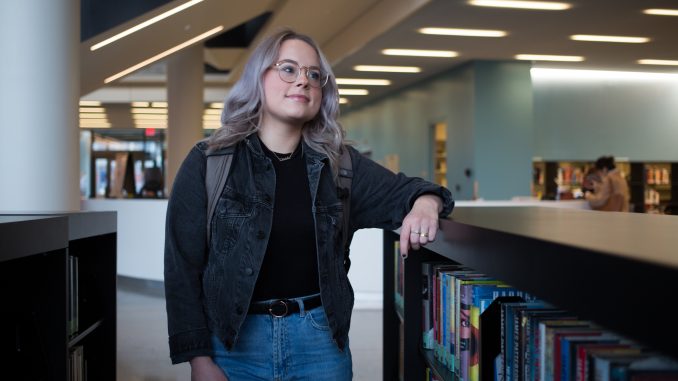
Junior media studies major Raymundo Varela-Urizar was discouraged from thinking about college early on in life.
“I had a special education teacher say that I couldn’t do it, and I even had family members say I couldn’t do it,” he said.
People doubted Varela-Urizar because he has autism, and he is the first in his family to go to college. Varela-Urizar is among Temple students who are part of the neurodiverse community and are first-generation students.
Neurodiversity describes a wide range of “neurological variations,” according to the Scientific American. Autism, learning disabilities and Attention Deficit Hyperactivity Disorder are all examples of neurodiverse disabilities.
Patricia McHugh, a student services coordinator for Temple University’s Disability Resources and Services, said helping students with neurodiversity is very individualized. Students have to meet with coordinators, like McHugh, to figure out what accommodations they need.
“What accommodation may work for one is not the case across the board,” she said.
Senior speech, language and hearing science major Christa Filbert is both a first-generation student. In her sophomore year of college, she found out she had a learning disability.
“I noticed I had a really hard time adjusting, which is common when transitioning to college, but I noticed like my grades started to plummet,” she said. “I noticed like I was having a lot of issues concentrating on tests [and] being in a classroom environment when I was taking my exams.”
At the time, Filbert didn’t know she had a learning disability. According to the National Center for Learning Disabilities, this is fairly common because “signs of learning and attention issues get overlooked or misinterpreted.”
Initially, Filbert believed her learning issues were stemming from her mental health issues, which were worsened because of the difficulty she had navigating college life.
While her parents were always supportive, they couldn’t be a resource because they hadn’t gone to college. Filbert had already had difficulties with the college application process and the financial aspects of college, like applying for financial aid.
“I had to find a lot of outside resources like counselors,” she said. “I would contact like neighbors and friends who I knew, like my neighbor went to law school, so I contacted her because she was really helpful with the process.”
Varela-Urizar also had to make his own way through college. His parents were supportive, but they hadn’t gone to college and were new to America.
“I wanted to go to college because I wanted to show that my mom and dad sacrifices and leaving their home country, for me, was not a waste of time,” he said. “My mom and dad always believed in the American dream, and they believed that I had true potential and true goals, even as a person with autism.”
After being in special education classes growing up, Varela-Urizar did not feel prepared academically.
“At 18 years old, my teachers put me in a stupid special education class where I was learning normal math,” he said. “And now I’m in college, and I am reading 27 pages of a textbook with no preparation. I had to do all this, this college thing, by myself, [and] with the help of the academic tutors.”
Being seen as a person by his peers and professors is what Varela-Urizar felt helped him succeed.
“I’m not the stereotypical autistic kid. I’m social. I have friends,” he said. “And the academic tutors and the professors, they see me as a human. You know, they listen to me, hear me speak.”
Filbert found her own community after a professor recommended she talk with DRS to get accommodations for her classes.
“It was really just such a struggle to try to work without accommodations, and at first, I was ashamed to ask for them,” she said. “But now I’m comfortable using them. They’ve integrated having a disability and college together more smoothly.”
Going to DRS also connected Filbert with Delta Alpha Pi, a group she’s now co-president of. This honor society serves as a way to change perceptions of students with disabilities by recognizing their academic accomplishments, connecting them with leadership opportunities, and — most importantly to Filbert — serving as a way for students with disabilities to connect.
McHugh said that building community is critical to the success of all students with disabilities.
“I think there’s all too often that students can sort of feel like they’re alone, and what they’re going through, and they come to find out that’s not the case,” she said. “Having that sense of community just really gives the students a place to grow, and I think that’s important for everyone to have to have that sense of belonging.”


Be the first to comment